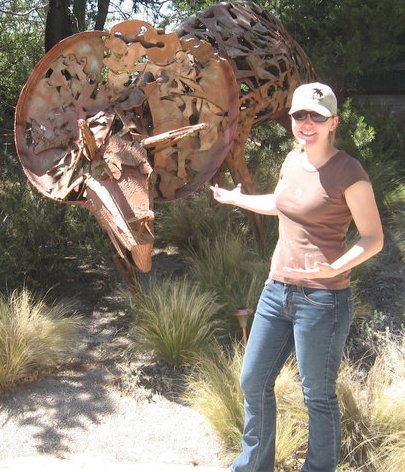Finally, it's Friday! Actually, the week went by much faster than I would have liked, so I'm rather shocked that it is already Friday.
This week had a little more variety than usual. Monday was typical, but the lab wasn't ridiculously involved, and I felt it went rather smoothly. We watched a movie on the deep oceans for part of it. Any lab that involves watching a movie narrated by Johnny Depp is bound to be laid back and easy. The hopelessness of my students with the metrics system is also deminishing. I'm a little confused as to why they act like they've never seen this before. Apparently it is a part of their standardized tests, fairly early on in school, if they went to public school (presumably, most of them did). Maybe it's one of those things where you see it when you're young, forget it, and then years later it shows up agian and it's like it is brand new.
A large part of my first year, I have determined, is going to be about collecting tools for my research. This involves making as many connections as possible, and learning as many new tricks as I can. Today I met with a Peter Fawcett in the Earth and Planetary Sciences department (sort of like geosciences). We discussed looking at pollen, and directed me to some other helpful people and reading. I ended up at the library later to obtain some books which will hopefully aid me. It looks like if I'm going to proceed with this project, I'll need to spend some time in another lab in another institution doing my data collection, because UNM doesn't have a lab that works with pollen.
I've also started a file on my computer for reading that I want to do to get caught up in my area of research. This is on top of the other reading I'll need to do for class.
Today my adviser gave a talk over in Earth and Planetary Sciences, which I attended. Her talk was on the after effects of the Late Quaternary Extinction, specifically, the drop in methane at the onset of the Younger Dryas that may have been caused by the loss of large herbivores. The idea is that large herbivores produce a lot of methane, which is an important greenhouse gas. For example, cows produce an absurd amount of methane; one could then imagine that things like mammoths also probably produced a lot of methane. Remove them from the picture, and you have a decrease in methane. If humans were the cause of this extinction, this means that we had a hand in altering the biogeochemistry of the earth WAY before the industrial revolution. If this is true, then humans are indeed the most miserably destructive creatures on the planet.
It's important to quickly note here that I'm sort of the oddball in my research group. I don't necessarily buy into the idea that humans are the sole (or necessarily the major) cause of the megafauna extinction at the end of the last ice age. My research group seems to think so. It's a sexy idea to think that humans caused it, and its really difficult to conclusively invoke climate. At the same time, I think the evidence just doesn't provide enough information to say humans were the main cause. Actually, I'm of the opinion that more evidence is needed to say much of anything regarding it. Until then, we have to just work with what we have without, hopefully, making too many assumptions about what we think we know.
Felisa's talk was interesting for many reasons, the foremost being that it asks a really important question: What did the removal of all the large herbivores do to the climate, environment, etc. once they were gone? Regardless of how it happened, the fact that they were gone likely had major ecological consequences. I agree with her a 100% on that point, and my research is largely involved with trying to figure all this out. The fact remains that a lot of what happened at the end of the Pleistocene, human caused or not, is happening NOW as a result of human activity on this planet. The consequences of those activites is largely unknown, but based upon what happened in the past, maybe we can prepare ourselves or stop it from happening in the first place.
11 hours ago


No comments:
Post a Comment